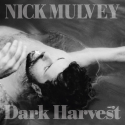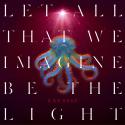Admired by Brazilian musical royalty like Milton Nascimento and Caetano Veloso, Maria Gadú, at the age of 27, already has four platinum albums to her credit, not to mention a couple of Latin Grammys. Her music blends the urban chaotic modernity of her hometown São Paulo with the grassroots sounds of the North East and Rio. Born Mayra Correa Aygadoux in 1986 Gadú was something of a child prodigy, and began writing songs and recording them onto cassette at the age of 10. Remarkably enough one of them, "Shimbalaie", would eventually make it onto her debut album and become her first hit. She had the confidence, or perhaps arrogance, not to play that or some of her other biggest tunes like “Dona Cila” (dedicated to her late grandmother) at this show.
She has a powerful and expressive voice and she seems a natural on stage. Wearing androgynous jeans, boots and plain shirt, the closest equivalent of her might be kd lang; she has the same confidence on stage, big voice, and nifty ability to rethink a cover version. Her biggest musical references last night were to Cazuza, a bisexual singer who died tragically young of AIDS and whose “Ideologia” she sang (“the enemies are all in power”), and Noel Rosa, the classic samba artist who mixed tradition with urban music and witty lyrics – his “Filosophia” was given a reworking. Her other most striking cover was Jacques Brel’s “Ne me quitte pas”, which became a hit, like several of her songs, through being used on the soundtrack of Brazil's ubiquitous soaps.
Despite her gorgeous voice, there was something rather defensive about her performance. The use of two electric guitars felt like a kind of shield against the audience, and the rock arrangements imposed too-similar soundscapes on songs which are often more nuanced on record or when she performs them as lovely understated duets with Caetano Veloso (see video, below). The sound emphasised this – you could barely hear the percussionist and the cellist was buried a bit. The result was a distinctly European/North American rock sound which went down very well with the largely Brazilian expat audience, but as far as a sound for export, to an audience who don’t understand the lyrics, that is more problematic.
More adventurous left-field Brazilian artists like Ceu or Karol Conka with their distinctive sounds are more likely to find an Anglo audience here than Gadú, on the basis of this show at least. When she did ring some musical changes, though, things opened up. The moment at the start of the encore when it was just her and the excellent cellist, for example, was one of the highlights of the evening and suggests a lot of other possibilities for adventurous musical directions which weren’t explored enough here. Nonetheless she's a dazzling talent and we will undoubtedly be hearing more of her.
Overleaf: watch video of Maria Gadú and Caetano Veloso













Add comment